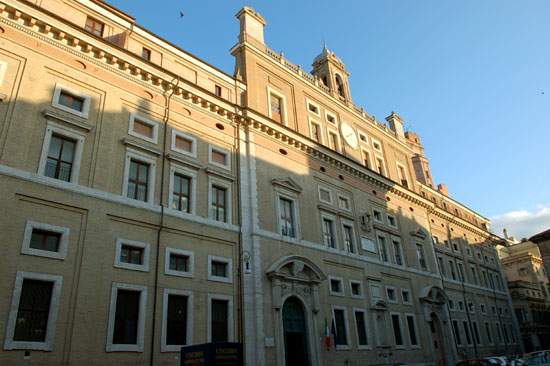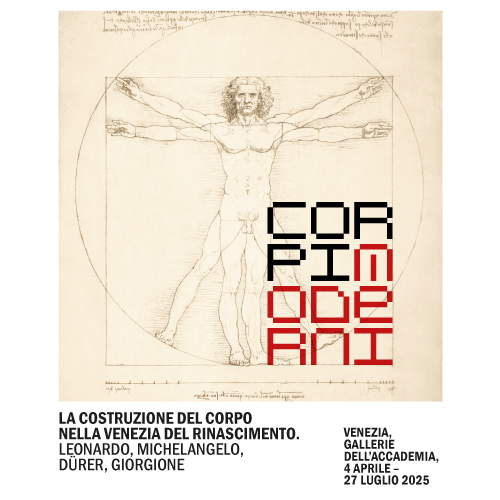From the ArtLab platform, a document with proposals for action for the next legislature
At the initiative of ArtLab, in view of the electoral consultations next September 25, for the first time the main Italian institutional and independent representative organizations of the creative and cultural sector have worked together to elaborate a common long-term vision, beyond sectoral logics. This is the document Culture is the Future, which contains some priority, urgent and qualifying proposals for action that, according to ArtLab, need to be taken up and taken care of in the new legislature in order to ensure the development of the sector. AGIS - Associazione Generale Italiana dello Spettacolo, AIB - Associazione Italiana Biblioteche, AIE - Associazione Italiana Editori, Alleanza delle Cooperative Italiane Cultura, ARCI, Basilicata Creativa, C.Re.S.Co. - Coordinamento delle Realtà della Scena Contemporanea, Cultura Italiae, Cultural Welfare Center, Distretto Puglia Creativa, Federculture, Fondazione Fitzcarraldo, Fondazione Symbola, KeepOn LIVE, ICOM - International Council of Museums Italia, Lo Stato dei Luoghi, Music Innovation Hub, Promo PA Fondazione - LuBeC.
Starting from the conviction that culture is a transversal infrastructure necessary to the country’s challenges, the document emphasizes the need for a systemic and unified approach that takes into account thecultural, social and economic impacts generated by the cultural and creative ecosystem. Reasoning from this perspective, the proposals for action focus on 5 priority thematic areas : regulatory interventions, investment and measures, labor, territorial rebalancing and contemporary creativity . These are calls for action on a number of structural deficiencies, bottlenecks and “historical” inequalities on which they will confront, in live streaming on ArtLab’s website and channels, on Tuesday, Sept. 13 from 5-6 p.m.15, the exponents of the political forces and coalitions that are candidates: Chiara Appendino, Movimento 5 Stelle; Valentina Aprea, Forza Italia; Lucia Borgonzoni, Lega; Ilaria Cavo, Noi Moderati; Nicola Fratoianni, Sinistra / Verdi; Valentina Grippo, Terzo Polo; Riccardo Magi, Più Europa; Federico Mollicone, Fratelli d’Italia; Roberto Rampi, Partito Democratico. On behalf of all the sponsoring organizations, Ugo Bacchella leads the meeting and Vincenzo Bellini and Rosa Maiello present the document.
You can download the document on the dedicated page on ArtLab’s institutional website. Below are all the proposals.
Regulatory interventions.
1. Introduction of arts and performance education and development of reading skills in all schools of all levels starting with preschools.
2. Definition of the legal status of CCI from the perimeter defined by the European Union. Recognition must take into account the plurality of legal nature, activities, forms, sectors and stages of production chains (production, distribution, management, use, service delivery, etc.).
3. Enhancement of the role of copyright in the web and fight against piracy, through not only regulatory tools for the protection of creativity, in the continuous search for a balance between the rights of authors and companies that invest and the rights of the public.
4. Identification of cultural welfare policies to move from single experiences to integrated processes of research, training and experimentation between the social welfare and cultural systems, also by activating a dedicated legislative path of parliamentary and/or governmental initiative in agreement with the Unified Conference.
5. Implementation of the Performing Arts Code through the urgent drafting of the delegated decrees within the deadlines established by law, with contextual and clear redefinition of the aspects related to the work and monitoring of the functions that the State and the Regions intend to entrust to the entities financed at all institutional levels (FUS, regional and municipal funds).
6. Adoption of a Law on Libraries and the National Library System.
7. Completion of the National Museum System by defining a reward system for accredited museums.
8. Completion of an evolved and easy-to-implement regulatory framework for public-private collaborative models, recognizing the role of businesses and Third Sector entities as strategic partners of the P.A.
Investments and measures
9. Adjusting investments in culture to the levels of European countries, increasing MIC resources and intervening in the budgets of other ministries, with special funds for the purchase of cultural goods and services and giving full implementation of the regulations (Law 208/15 and Law 717/1949) that allocate portions of investments in infrastructure to contemporary creativity and cultural heritage.
10. Development of a policy to stimulate private demand, both through measures along the lines of the 18App and through measures such as tax deduction of cultural expenditures and the reduction of VAT rates to the minimum permitted level (EU Dir. 2022/542) for all sectors excluded to date.
11.Revision, simplification and extension of indirect supports to a wider range of subjects and sectors starting with the Art Bonus, the reintroduction of the 2x1000 for culture and the revision of the 5x1000.
12.Finalization of funds, tax credits and the incentives for businesses to encourage innovation (not only digital), experimentation with innovative and digital models (extended reality, Metaverse, blockchain, artificial intelligence, data science), internationalization, eco-sustainability and wider accessibility, as well as programs for growth and training of start-ups and SMEs and the widespread development of business incubators and accelerators specializing in CCI.
13.Development of dedicated financial instruments (microcredit, guarantees, training vouchers, matching funds, etc.) and strengthening of existing ones.
Work
14.A unified framework of the different sectoral contractual forms, combining protections and rights with the typical features of flexible and discontinuous work and with the recognition of professionalism and respect for contractual minimums, guaranteeing transparency and respect for professionalism requirements even in P.A. outsourcing.
15. Interventions to foster the growth of skilled employment in the public and private sectors, filling the serious shortages of personnel and skills, especially technical and innovative ones, accumulated over the years in the P.A. and incentivizing youth and skilled hires in the CCI.
16. Medium- to long-term investment in human capital, in synergy with Education and Universities, for the growth and training of innovative, hybrid and entrepreneurial skills that can retrain and accompany the sector towards new sustainable models and digital and green transitions
Spatial rebalancing
17.Policy to develop public cultural infrastructure particularly in fragile and marginal areas (South, suburbs, inland areas, etc.).
18.Programs of support and accompaniment for cultural enterprises and organizations that operate in contexts of fragility and/or marginality, for which the conditions for market sustainability do not exist today, through incentives, support for the creation of networks and supply chains, investments and measures that can be disbursed on the basis of development plans that can guarantee their sustainability over time.
19.Incentive and training programs in fragile areas and small municipalities to encourage the development and implementation of public-private partnerships, recognizing the capacity of cultural enterprises and Third Sector entities, management, co-design and co-realization of cultural services and social innovation in the territories.
Contemporary creativity
20.Enhancement of the multidisciplinary and multifunctional dimension of culture through specific policies to promote and support new authorship, new languages and popular and contemporary, digital and analog artistic forms, including for the training of new audiences.
21.Support for the dissemination of contemporary Italian art, creativity and culture abroad.
22.Allocation of a share of funding for production and programming to cross-sectoral collaborations and projects that do not fit into disciplinary classifications.
 |
| From the ArtLab platform, a document with proposals for action for the next legislature |
Warning: the translation into English of the original Italian article was created using automatic tools. We undertake to review all articles, but we do not guarantee the total absence of inaccuracies in the translation due to the program. You can find the original by clicking on the ITA button. If you find any mistake,please contact us.





























